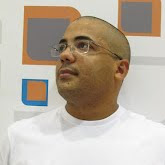Diversity and Super-Diversity: Sociocultural Linguistic Perspectives (GURT 2015)
Linguistic and cultural diversity
have become the hallmarks of late modern societies. Globalization has increased
population flows in unprecedented ways so that urban centers have been
transformed into sites of encounter for groups and communities that are highly
diverse in terms of origins, cultural practices and languages.
Technological developments and global
connectedness have also contributed to spread diversity as they intensify
contact and exchange between peoples who often are spatially removed and
culturally different from each other. New technologies allow for massive access
to globalized phenomena, thus exposing people to a great variety of linguistic
and cultural models. The proliferation of new media creates new communicative
genres and hybrid semiotic practices. Thus, we live in a world in which
(physical or virtual) contact and interaction between different peoples,
languages, cultural models, media and practices are the norm.
These changes and developments
have deeply affected the ways people use language and communicate in all
contexts of life, thus creating the need for a rethinking of the traditional
concepts and methodologies used in sociocultural linguistics.
Recent work
in the field has started to give substance to this reflection problematizing
the conception of languages as well-bound, separate codes, complicating
traditional associations between languages and social identities, emphasizing
the connectedness of communicative events and practices at different scales and
the embedding of languages within new physical landscapes and mediated
practices. The objective of GURT 2015 is to foster and advance this reflection
on the ways in which linguistic and communicative practices are affected by and
contribute to diversity and on the theoretical-methodological challenges that
accounting for such phenomena poses to sociocultural linguistics.
PLENARY SPEAKERS
Jan Blommaert (Tilburg
University)
Suresh Canagarajah
(Pennsylvania State University)
Angela Creese
& Adrian Blackledge (University of
Birmingham)
Norma
Mendoza-Denton (University of Arizona)
Elana Shohamy (Tel Aviv University)
INVITED COLLOQUIA
Kendall King & Elizabeth Lanza (University of Minnesota & University of Oslo)
Luisa Martin-Rojo (Universidad Autónoma de Madrid)
Ruth Wodak (Lancaster
University)
GURT invites papers that explore
the connections between diversity and linguistic/communicative practices from
the perspectives described in the conference theme. We are particularly
(although not exclusively) interested in the following topics:
- The impact of diversity on
sociocultural linguistic theory and research methodologies
- The relationships between diversity
and hybridity in linguistic and semiotic practices
- Challenges and responses to linguistic
and cultural diversity in different institutional domains such education, the
workplace, community organizations and in non institutional domains such as the
family
- Diversity and the
construction/negotiation of identities
- The use of linguistic and other
semiotic resources within new practices involving diverse communities
- Language policies and diversity issues
in the public space
- Diversity of genres, practices and
participation frameworks in mediated communication
- Diversity and time/space scales
Proposals will be blind reviewed
for their originality, quality, and breadth of relevance. In addition,
colloquium proposals will be evaluated for the coherence and complementarity of
their individual presentations.
Deadline for submitting abstracts: October 15, 2014.
Notification
of acceptance:
December 15, 2014.
For
information: http://units.georgetown.edu/linguistics/gurt/2015/index.html









0 comentários:
Postar um comentário